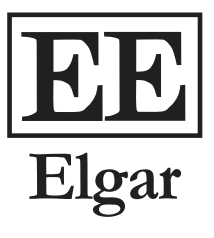
Nicola Francesco Dotti analyses polymaking in his recent book: Knowledge, Policymaking and Learning for European Cities and Regions, From Research to Practice
How do you learn about (urban and regional) policy? What aspects of policymaking? When? Where? From whom? Academics like to influence policymakers, often blaming politicians because they do not understand their ideas, whereas policymaking has its own rationale and dynamics.
This extreme simplification sketches the starting point of the book: how do researchers can be agents of policy learning? Especially at the urban and regional levels, where researchers and policymakers can meet and interact directly, being Agents of Policy Learning requires to master research-based contents, understanding policymaking and capacity to interact with policymakers. This colossal challenge questions the disciplinary divisions between policy scholars focused on processes (often at the national/European level), and those working in urban and regional studies, who mainly master the contents for decision making. While there is a growing emphasis for scholars to have ‘policy impacts’, these disciplinary divisions should be overcome, though it is still unclear how.
The keyword of this book is ‘dialogue’, referring to the Greek etymology: something which goes on between two ‘logos’, the two rationales of research and policymaking. Around this notion, the book is articulated in four blocks:
- The theories of policy learning,
- Eight case studies of research for urban and regional policymaking, primarily focusing on the actors of these dialogic interactions,
- The big and open data revolution, and
- A framework to carry out the research-policy dialogue.
Readers might be disappointed because the book does not have a thesis to demonstrate. On the contrary, the goal is to provide scholars, especially early career researchers, with a framework to question their interactions with policymakers, and maybe to help them to turn into policymaking.
The next step pointed out by the book is the notion of ‘policy resilience’. By discussing the cognitive-evolutionary approach, the notion of ‘policy knowledge governance’ is presented as a way to purposefully structure policy learning processes within policymaking ie: policy learning should no longer be seen as a side-product of policymaking, but a fundamental dimension of governance conceived as an evolutionary process looking for the ‘fittest’ policy knowledge.
To know more, see https://era.ideasoneurope.eu/2018/12/10/knowledge-policymaking-and-learning-for-european-cities-and-regions-from-research-to-practice/
 Dr. Nicola Francesco DOTTI, RSA Ambassador for Belgium is a postdoctoral research fellow in Regional Economics and Policy at the unit ‘Dynamics of Innovation, Research and Higher Education (DIRE) of the Vrije Universiteit Brussel (VUB). He is also research fellow at the International Centre for Innovation, Technology and Education (ICITE) of the Solvay Brussels School of the Universté Libre de Bruxelles (ULB) in Brussels (Belgium), and at the Institut de Sciences Politiques Louvain-Europe (ISPOLE) at the Université Catholique de Louvain (CUL) in Belgium.
Dr. Nicola Francesco DOTTI, RSA Ambassador for Belgium is a postdoctoral research fellow in Regional Economics and Policy at the unit ‘Dynamics of Innovation, Research and Higher Education (DIRE) of the Vrije Universiteit Brussel (VUB). He is also research fellow at the International Centre for Innovation, Technology and Education (ICITE) of the Solvay Brussels School of the Universté Libre de Bruxelles (ULB) in Brussels (Belgium), and at the Institut de Sciences Politiques Louvain-Europe (ISPOLE) at the Université Catholique de Louvain (CUL) in Belgium.
 Knowledge, Policymaking and
Knowledge, Policymaking and
Learning for European Cities and Regions
From Research to Practice


Leave a Reply